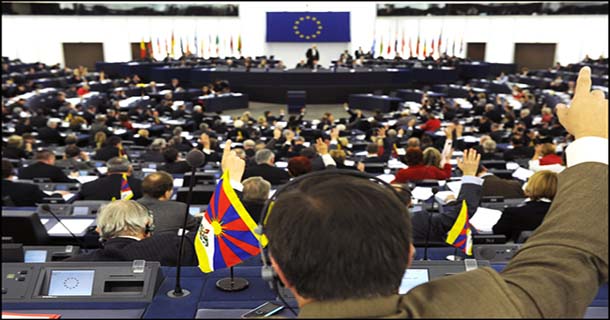
Photo courtesy: EU Parliament
After the successful adoption of the Reciprocal Access to Tibet Act by the United States in December 2018, European law makers have now called on their Parliaments for adoption of a similar Act.
A group of eleven European parliamentarians and 25 parliamentarians from EU member countries have published an opinion piece in EURACTIVE.Com, a platform for European news and politics, calling on their countries to instigate legal proceedings to rebalance their relationship with China by passing a similar reciprocal access Act that would give the same free access for European citizens to visit Tibet as their Chinese counterparts enjoy in Europe.
The report stated that the situation in Tibet has remained critical over the last six decades, but that awareness of the conditions of Tibetan people living under Chinese rule – including the tragic self-immolation of over 150 Tibetans – has reduced over the last decade. “It’s high time that we in Europe demand unfettered access to the region for our citizens in keeping with our values and in support of a more balanced relationship with China” said the report.
The report also stated that foreign diplomats, parliamentarians, journalist and even UN officials are often denied permission to visit the Tibetan Autonomous Region. A special permit is required for a Chinese visa to visit the region and even if they do obtain permission the visit is highly controlled and supervised, always by a government appointed guide. Conversely, Chinese citizens visiting Europe have freedom of movement anywhere within the territory of the European Union; an equal right for European citizens visiting China must be demanded.
The reciprocal access act also demands equal access for foreign media and international news channels to Tibet. The signatories urged European leaders to focus more on the reciprocity of freedom that Chinese people enjoy in Europe, rather than focusing only on trade and equal access to markets for foreign investments.
Beijing, under its policy of peaceful development, has been promoting its propaganda through various means such as student exchange programmes and Confucius Institutions, while maintaining a closed door for foreign visitors and journalists to report news and assess the reality inside Tibet and Xinjiang.
The United States adopted the Reciprocal Access to Tibet Act (RATA) in December.




 Print
Print Email
Email